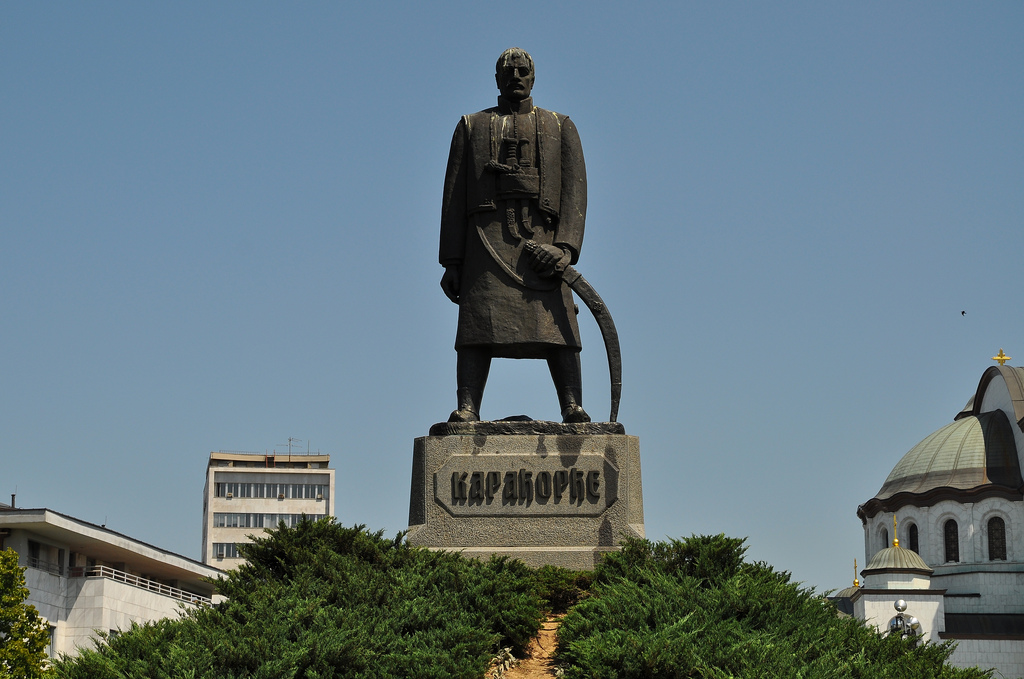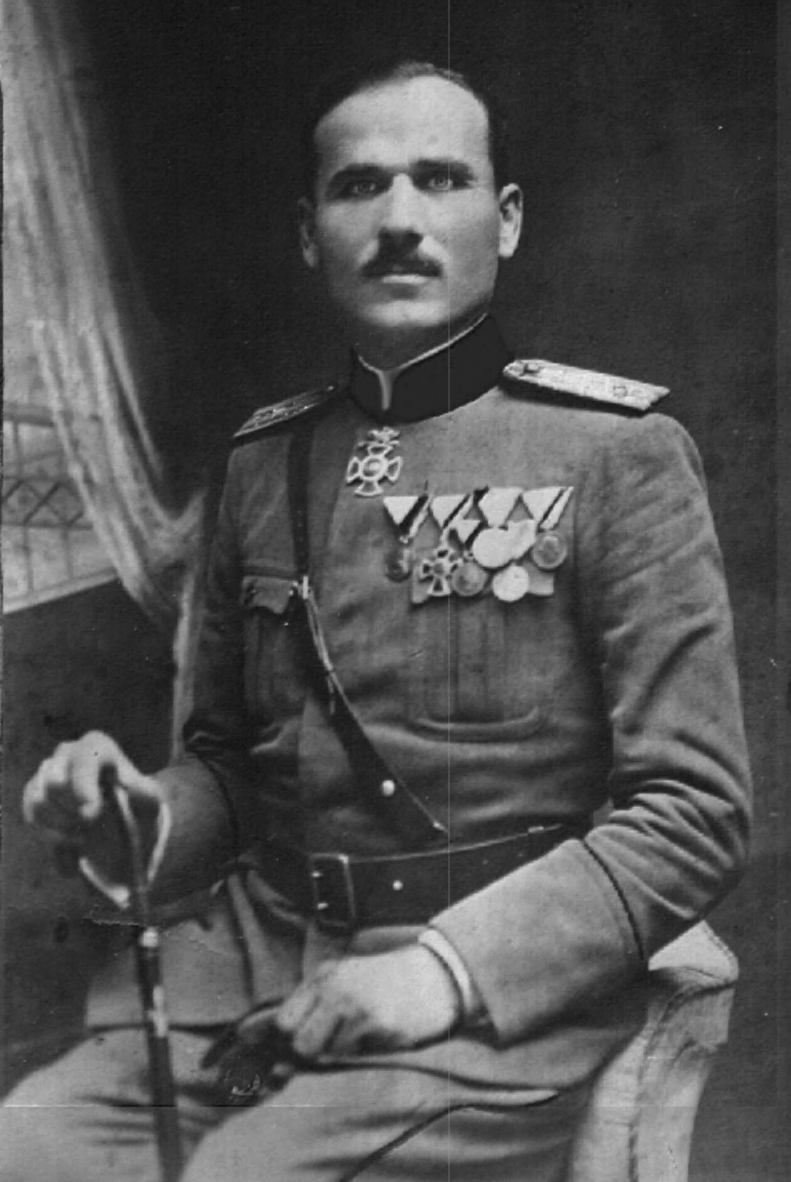|
Montenegrin Whites
The Whites ( sr, Бјелаши, Bjelaši) was the name given to pan-Serbian and Yugoslavist activists in Montenegro during and after the declaration of the Podgorica Assembly in November 1918. The Podgorica Assembly allowed the Montenegrin people to vote on the fate of the Kingdom of Montenegro. The two options were for the Kingdom of Montenegro to join the Kingdom of Serbia through an annexation-based unification or through a confederation-based unification. The name of the Whites derived from the "White List", as opposed to the "Green List", from where the Greens took their name from. The Assembly ended with overwhelming support for annexation-based unification. The movement was led by Marko Daković, Andrija Radović Andrija Radović ( sr-cyr, Андрија Радовић; 1872–1947) was a Montenegrin and Yugoslav politician and statesmen, former Prime Minister and leader of the People's and then Democratic Party, fighter for parliamentary democracy and ... and ... [...More Info...] [...Related Items...] OR: [Wikipedia] [Google] [Baidu] |
Pan-Serbian
Serbian nationalism asserts that Serbs are a nation and promotes the cultural and political unity of Serbs. It is an ethnic nationalism, originally arising in the context of the general rise of nationalism in the Balkans under Ottoman rule, under the influence of Serbian linguist Vuk Stefanović Karadžić and Serbian statesman Ilija Garašanin. Serbian nationalism was an important factor during the Balkan Wars which contributed to the decline of the Ottoman Empire, during and after World War I when it contributed to the dissolution of the Austro-Hungarian Empire, and again during the breakup of Yugoslavia and the Yugoslav Wars of the 1990s. After 1878, Serbian nationalists merged their goals with those of Yugoslavists, and emulated the Piedmont's leading role in the ''Risorgimento'' of Italy, by claiming that Serbia sought not only to unite all Serbs in one state, but that Serbia intended to be a South Slavic Piedmont that would unite all South Slavs in one state known as Yu ... [...More Info...] [...Related Items...] OR: [Wikipedia] [Google] [Baidu] |
Marko Daković
Marko Daković (Serbian Cyrillic: Марко Даковић; Grahovo, 20 February 1880 – Athens, 16 April 1941) was a Montenegrin and Serbian politician and lawyer, independent MP in the National Assembly of Serbs, Croats and Slovenes, and minister 1941 General Simović's Cabinet. He was the leader of the movement for unification of Montenegro with the Kingdom of Serbia and Yugoslavia in 1918, and one of the most prominent figures in the political life of Montenegro in the interwar period. Daković was born on February 20, 1880 in Grahovo, in the Nikšić district of the Principality of Montenegro. He finished elementary school in his hometown, and gymnasium and the Faculty of Law in Belgrade, in the Kingdom of Serbia. Marko Daković was unofficially named the leader of the "United Serb Youth of Montenegro". He is one of the founders of the Association of Montenegrin Students at the University of Belgrade, which was critical of King Nikola's regime in Montenegro, result was a ... [...More Info...] [...Related Items...] OR: [Wikipedia] [Google] [Baidu] |
Defunct Political Parties In Montenegro
{{Disambiguation ...
Defunct (no longer in use or active) may refer to: * ''Defunct'' (video game), 2014 * Zombie process or defunct process, in Unix-like operating systems See also * * :Former entities * End-of-life product * Obsolescence Obsolescence is the state of being which occurs when an object, service, or practice is no longer maintained or required even though it may still be in good working order. It usually happens when something that is more efficient or less risky r ... [...More Info...] [...Related Items...] OR: [Wikipedia] [Google] [Baidu] |
Montenegro–Serbia Relations
Montenegrin–Serbian relations are foreign relations between Montenegro and Serbia. From 1918 until 2006 the two states were united under the Kingdom of Yugoslavia, the Socialist Federal Republic of Yugoslavia, and Serbia and Montenegro. There is controversy regarding the national identity of Montenegro due to recent political developments in the region. There is a debate on the ethnic identification of Montenegrins (whether they are Serbs or not), and the name of the national language ( Montenegrin versus Serbian). Despite this, the two countries have maintained mostly friendly relations. History Pre-Yugoslavia Before Yugoslavia existed, there was very little distinction between Serbs and Montenegrins as both peoples largely held allegiance to the Serbian Orthodox Church, which directly influenced the establishment of the Prince-Bishopric of Montenegro in 1697. Petar II Petrović-Njegoš, one of the most historic rulers of the theocratic Montenegrin Prince-Bishopric, composed ... [...More Info...] [...Related Items...] OR: [Wikipedia] [Google] [Baidu] |
Political History Of Montenegro
Politics (from , ) is the set of activities that are associated with making decisions in groups, or other forms of power relations among individuals, such as the distribution of resources or status. The branch of social science that studies politics and government is referred to as political science. It may be used positively in the context of a "political solution" which is compromising and nonviolent, or descriptively as "the art or science of government", but also often carries a negative connotation.. The concept has been defined in various ways, and different approaches have fundamentally differing views on whether it should be used extensively or limitedly, empirically or normatively, and on whether conflict or co-operation is more essential to it. A variety of methods are deployed in politics, which include promoting one's own political views among people, negotiation with other political subjects, making laws, and exercising internal and external force, including war ... [...More Info...] [...Related Items...] OR: [Wikipedia] [Google] [Baidu] |
Serbian Nationalism In Montenegro
Serbian may refer to: * someone or something related to Serbia, a country in Southeastern Europe * someone or something related to the Serbs, a South Slavic people * Serbian language * Serbian names See also * * * Old Serbian (other) * Serbians * Serbia (other) * Names of the Serbs and Serbia Names of the Serbs and Serbia are terms and other designations referring to general terminology and nomenclature on the Serbs ( sr, Срби, Srbi, ) and Serbia ( sr, Србија/Srbija, ). Throughout history, various endonyms and exonyms have bee ... {{Disambiguation Language and nationality disambiguation pages ... [...More Info...] [...Related Items...] OR: [Wikipedia] [Google] [Baidu] |
Ljubomir Vuksanović
Ljubomir "Ljubo" Vuksanović was a Montenegrin lawyer who was the chairman of the National Administrative Council ( sr, Народна управа, german: Nationaler Verwaltungsausschuss) established by Germany in October 1943 in the German occupied territory of Montenegro and officially appointed on 10 November 1943. Vuksanović also held the position of Minister of Internal Affairs. Early life and pre-WWII period Vuksanović was born in the village of Prisoja in the Andrijevica municipality in Montenegro. After he completed Gymnasium in Belgrade, he graduated from the Belgrade Law School. In 1909 he participated in the Kolašin Affair, for which he was put on trial and sentenced to 15 years in prison. Vuksanović managed to escape from prison and thereafter joined the Royal Serbian Army, where he received the rank of sergeant. He fought in the Macedonian front during the period 1915—18. During the period 1929—33 he lived in Peć as a lawyer. In 1933 Vuksanović was appoin ... [...More Info...] [...Related Items...] OR: [Wikipedia] [Google] [Baidu] |
Andrija Radović
Andrija Radović ( sr-cyr, Андрија Радовић; 1872–1947) was a Montenegrin and Yugoslav politician and statesmen, former Prime Minister and leader of the People's and then Democratic Party, fighter for parliamentary democracy and chief proponent of Montenegro's unification with Serbia. Youth Andrija Radović was born to father serdar (count) Jagoš in the village of Martinići, Danilovgrad into the Bjelopavlići clan, in the still unrecognized Principality of Montenegro on 28 January 1872. After finishing the elementary and secondary schools in Cetinje, he went to professionalize in the Kingdom of Italy studying engineering at the Artillery-Engineering Academy from 1890 to 1894 as Nicholas' Pioneer. Upon returning, he got the job as the Military Engineer later raising to the position of Secretary of the Military Council and Court Marshal. At the end of the century, he was appointed by President of the State Council Božo Petrović-Njegoš as State Engineer, Direc ... [...More Info...] [...Related Items...] OR: [Wikipedia] [Google] [Baidu] |
Greens (Montenegro)
The Greens ( sh-Cyrl-Latn, Зеленаши, Zelenaši) were a group of loyalists of King Nikola of Montenegro. They originated from the members of the True People's Party and were most notable for instigating the Christmas Uprising of 1919. The rebellion was staged in an attempt to prevent the dethroning of the Petrović-Njegoš dynasty and the subsequent integration of Montenegro into the Kingdom of Yugoslavia. The Greens were supporters of the House of Petrović-Njegoš, which once the house was dethroned after World War I, led the Greens to fight for the establishment of Montenegro as a province within the Yugoslav kingdom. Following their defeat in the Christmas Rebellion, the Greens continued on with their guerrilla warfare until 1929. The motto of the movement was "For the Right, Honour and Freedom of Montenegro". During World War II, the Greens were activated once again under the leadership of Krsto Popović in an attempt to re-establish the Kingdom of Montenegro as an Ax ... [...More Info...] [...Related Items...] OR: [Wikipedia] [Google] [Baidu] |
Yugoslavist
Yugoslavism, Yugoslavdom, or Yugoslav nationalism is an ideology supporting the notion that the South Slavs, namely the Bosniaks, Croats, Macedonians, Montenegrins, Serbs and Slovenes, but also Bulgarians, belong to a single Yugoslav nation separated by diverging historical circumstances, forms of speech, and religious divides. During the interwar period, Yugoslavism became predominant in, and then the official ideology of the Kingdom of Yugoslavia. There were two major forms of Yugoslavism in the period: the regime favoured integral Yugoslavism promoting unitarism, centralisation, and unification of the country's ethnic groups into a single Yugoslav nation, by coercion if necessary. The approach was also applied to languages spoken in the Kingdom. The main alternative was federalist Yugoslavism which advocated the autonomy of the historical lands in the form of a federation and gradual unification without outside pressure. Both agreed on the concept of National Oneness deve ... [...More Info...] [...Related Items...] OR: [Wikipedia] [Google] [Baidu] |
Confederation
A confederation (also known as a confederacy or league) is a union of sovereign groups or states united for purposes of common action. Usually created by a treaty, confederations of states tend to be established for dealing with critical issues, such as defense, foreign relations, internal trade or currency, with the central government being required to provide support for all its members. Confederalism represents a main form of intergovernmentalism, which is defined as any form of interaction around states which takes place on the basis of sovereign independence or government. The nature of the relationship among the member states constituting a confederation varies considerably. Likewise, the relationship between the member states and the general government and the distribution of powers among them varies. Some looser confederations are similar to international organisations. Other confederations with stricter rules may resemble federal systems. Since the member states of ... [...More Info...] [...Related Items...] OR: [Wikipedia] [Google] [Baidu] |






.png)
